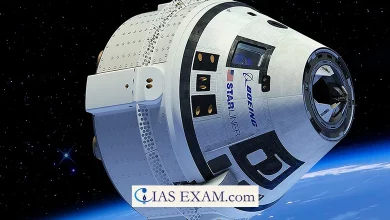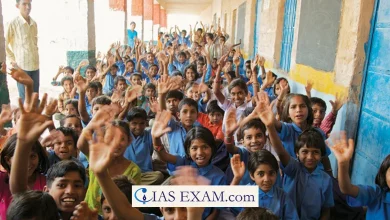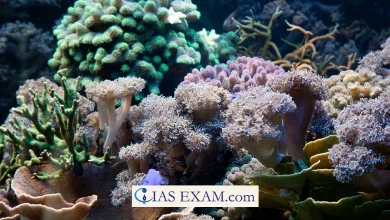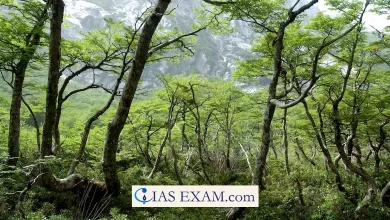Daily Current Affairs for UPSC
India’s Agenda on World Trade Organization (WTO), MC-13
Syllabus: International Relations [GS Paper – 2]
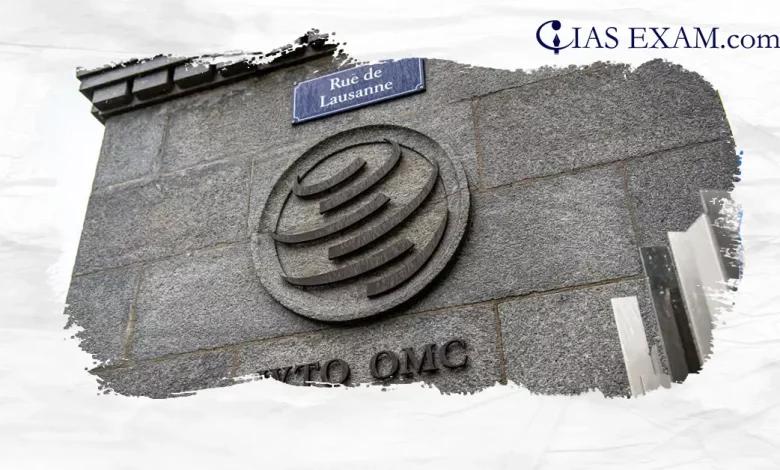
Context
On February 26th, the bustling and dynamic city of Abu Dhabi played host to the 13th ministerial conference (MC13), meeting in the United Arab Emirates (UAE). The conference attracted much interest from countries around the world. India is one of those. India has assembled a prestigious delegation, headed by its honourable Minister of Finance and Industry, Mr. Piyush Goyal, who will participate and add substance to the proceedings.
An overview regarding World Trade Organisation (WTO)
- The World Trade Organization (WTO) was founded in 1995 with the aim of helping all countries trade internationally for mutual advantage.
- Its principal objectives include making trade negotiations easier, lowering trade barriers, holding fair trade talks, and helping in general the economic development of all people on earth.
- Furthermore, the WTO vouches for the enforcement, supervision, and settlement of disputes arising under those accords.
- Being a global community of over 160 countries, including many fledgling nations, the WTO works by impartiality, openness, and unlimited trade.
- It also places strong emphasis on supporting the trade capacities of developing countries and on raising popular understanding of global trade issues.
About the conference of WTO, MC-13
- In the United Arab Emirates and on from the 26th of February until the 29th of February, 2024, Abu Dhabi’s thirteenth Ministerial Conference (MC13) of the World Trade Organisation (WTO) will be held.
- This long-awaited event aims to bring trade ministers from various countries together for several reasons: first is presumably their evaluation of whether or not the world organisation system for trading is moving effectively toward its macro targets; second tellingly we’re seeking agenda items in advance from WTO delegates concerning future activities, and third maybe most forward-looking of all just how distant are we now trajectory-wise from this great (organisation).
- At a stroke with the conference in Abu Dhabi, leaders across the world have come together to analyse what’s going on in international trade, wring the details out and see where they might move them more to Shanghai later on.
- By means of thorough debate, negotiation and cooperation, MC13 aspires to create an environment conducive for fair equitable trade. This will promote economic progress the world over.
India’s objectives for the meeting
- India faces food security issues and relies on the public stockholding programme to procure crops like rice and wheat at a minimum support price from farmers and distribute them to the poor.
- The WTO’s Agreement on Agriculture limits India’s ability to purchase food at MSP, leading to a debate on reforms.
- India opposes joint support initiatives and plurilateral agreements that are outside the WTO’s mandate.
- Agricultural reforms are being pushed by developed nations, but India wants to protect farmer livelihoods and ensure fair market access.
- India supports fair WTO reforms that consider the needs of developing countries and advocates for retaining key pillars such as special treatment for developing nations, equal voice, and a fair dispute settlement mechanism.
- In terms of fisheries subsidies, India supports a balanced approach and emphasises the responsibility of advanced fishing nations in contributing to sustainable fishing practices.
Conclusion
- During the 13th Minister Conference of the World Trade Organization(WTO), India reaffirmed its unwavering resolve to address some vital issues. For example, food safety, agricultural reform, and maintaining the interests of its own market.
- Although following international trade rules and regulations, on these matters India pursues its solutions with emphasis on a policy that meets both local population needs but is also in line with the worldwide community’s general objectives.
Source: World Trade Organisation
UPSC Mains Practice Question
Q.Critically evaluate the direct or indirect impact of India’s Agenda, at WTO conference recently held at Abu Dhabi, on India’s GDP.





.png)
